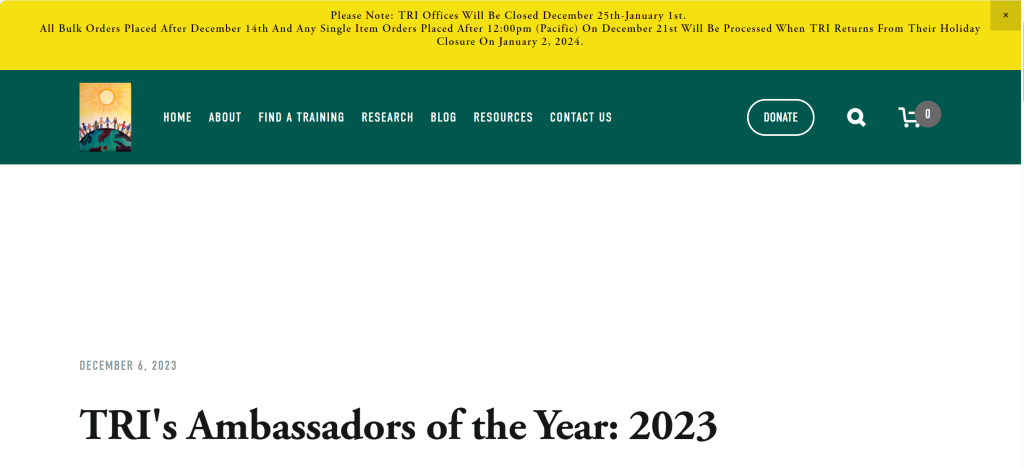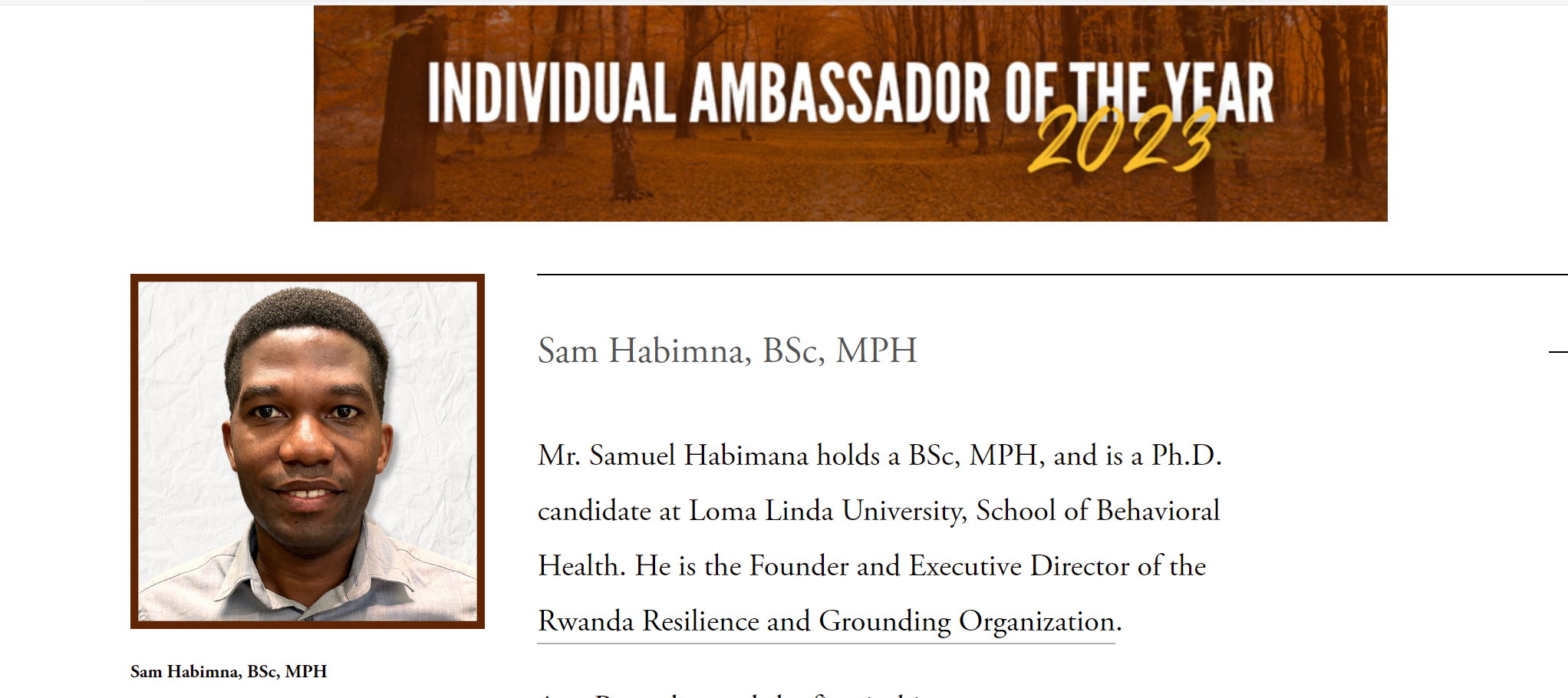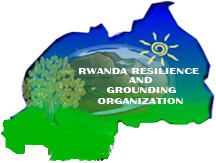
Mr. Samuel Habimana holds a BSc, MPH, and is a Ph.D. candidate at Loma Linda University, School of Behavioral Health. He is the Founder and Executive Director of the Rwanda Resilience and Grounding Organization.For more:TRI’s Ambassadors of the Year: 2023 — Trauma Resource Institute

As a Rwandan and the first in his ancestry to pursue graduate education, Mr. Habimana is married to Uwase Estella, with two sons, Archie Byson Habimana (three and a half years old) and Dwight Kanimba Habimana (three months old).
He is a licensed clinical psychologist in Rwanda and holds a Master’s in Public Health from the University of Rwanda. He is a Ph.D. candidate at the School of Behavioral Health, Loma Linda University (LLU), in California.
Raised by a farmer and parents who did not have the advantage of education in a rural area of the northern province of Rwanda, Mr. Habimana grew up with seven siblings. He experienced displacement as a refugee during less than five years of childhood, moving from his home country to the Democratic Republic of Congo and back to Rwanda.
Living through civil wars until age 10, his journey reflects a deep commitment to academic excellence and humanitarian efforts.
Mr. Habimana’s journey with the Community Resiliency Model (CRM)® began in 2015. The training teams who went to Rwanda and then to Tanzania for additional training included Eva Nagel, Mary Barrett, Elaine Miller-Karas, Nancy Sokolow and Wendy Flick. Mr. Habimana received CRM skills training certification in Arusha, Tanzania, in October 2015, contributing to the extension of resilience and trauma healing in his Rwandan community and internationally. Following CRM training, Mr. Habimana founded Rwanda Resilience and Grounding Organization (RRGO) to propagate CRM for individual self-healing and community well-being. Since 2015, he has collaborated with the Trauma Resource Institute (TRI), focusing on capacity building and securing funding to aid his community in trauma healing, resilience development, and fostering social cohesion.
Mr. Habimana has been actively advancing these objectives within Rwanda, conducting training sessions for diverse groups such as students affiliated with associations of genocide survivors, community health workers, genocide survivors, perpetrators, returnees, and healthcare providers. The overarching aim has consistently been to facilitate self-healing and promote community resilience. Through workshops, training programs, and televised presentations, he has addressed the mental health repercussions of the tragic events and genocide in Rwanda. These initiatives aim to guide Rwandans in overcoming mental health challenges, building resilience, and fostering social cohesion and reconciliation.
Mr. Habimana’s impactful efforts have reached a significant audience, with over five thousand individuals receiving in-person Community Resiliency Model training or learning about CRM through his televised presentations on Rwandan national TV and Flash TV Rwanda , as well as at conferences in Kigali, Rwanda. He actively engaged in international training and consulting endeavors related to the CRM across Africa. Notably, in 2015, Mr. Habimana led training sessions in Njiri village, Arusha, aimed at capacity-building and fostering self-agency among the nuns residing in Njiri village and the women heading the organization involved in crafting handmade goods. His commitment extended to Sierra Leone, specifically in Waterloo, in February 2016. In response to the mental health repercussions and the need for capacity-building among the victims of the Ebola pandemic and civil wars that had deeply impacted the Sierra Leone community, Mr. Habimana conducted CRM trainings at the Waterloo Adventist Hospital. This initiative was spearheaded by Dr. Buckles Beverly, the Dean and team leader of the Trauma Team from the School of Behavioral Health at Loma Linda University.
In July 2019, Mr. Habimana formalized a contractual agreement with World Concern International, bringing his expertise to Niamey, Niger. During this engagement, he conducted training sessions on the Community Resiliency Model for World Concern personnel. The emphasis was on addressing trauma and depression while enhancing self-care capacity, specifically targeting survivors of wars and conflicts, as well as individuals from Western Africa. In August 2018, he presented research on the role of Community Resiliency Model workshops in Trauma Healing among 1994 Tutsi Genocide Survivors in Rwanda at the 4th World Congress of Resilience in Marseille, France, and the paper was published in 2021 (Habimana, S. et al., 2021).
In the current year, in collaboration with RRGO, funded by Rotary International, Victoria Park Rotary Club, Butare Rotary Club, and TRI, Mr. Habimana implemented a project to restore peace and compassion among Rwandan genocide survivors and ex-prisoners. This project involved Community Resiliency Model skills training and laughter yoga exercises conducted over three days in 15 villages in Rwanda. The CRM skills had a significant impact, benefiting over 350 genocide survivors, local leaders and perpetrators who participated in CRM training sessions in Rwanda’s southern, western, and eastern provinces. The outcomes of the CRM intervention were remarkable, notably reducing post-traumatic stress disorder and depression, promoting social cohesion, and enhancing resiliency capacities for both survivors and perpetrators.
Mr. Habimana is working in the CRM lab at Loma Linda University, his doctoral research focuses on “Psycho-social Factors in Survivors and Perpetrators of the 1994 Rwandan Genocide against Tutsi: The Role of the Community Resiliency Model in Helping Build Resilience and Social Cohesion.” Collaborating with committee members and research mentors, Drs. Susanne Montgomery, Zephone Lister, Kimberly Freeman, and Mr. Habimana aim to contribute valuable insights to this critical area. He has been presenting the preliminary findings of his research in both regional research symposiums: Advancing Evidence-based Intervention for Mental Health, Child Development, and Parenting on September 20-23 in Kigali, Rwanda; and internationally at the International Society for Traumatic Stress Studies (ISTSS): Scalability Strategies in addressing the impact of trauma worldwide, on November 1-4 in Los Angeles, California.
TRI’s Ambassadors of the Year: 2023 — Trauma Resource Institute
